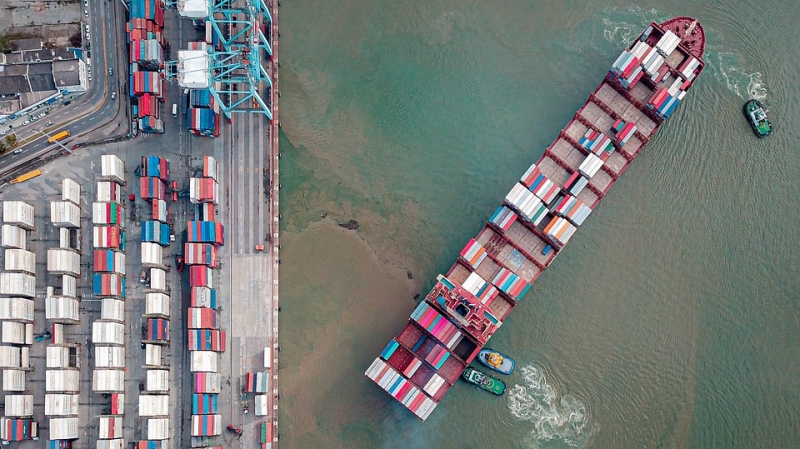The “fairness” of free trade agreements is front and center in today’s often rancorous political dialogue—but rarely is the environment a top-tier consideration in the debate. In a timely article, Vanderbilt University Law School Prof. Timothy Meyer offers a valuable environmental perspective on trade agreements that deserves attention. Professor Meyer offers empirical evidence that selective enforcement of environmental laws is “considerably more pervasive than commonly thought.” The result, he contends, is that trade agreements can undermine environmental interests in the energy and fisheries sectors, the most traded commodity and the most traded food respectively.
In Free Trade, Fair Trade, and Selective Enforcement, originally published in the Columbia Law Review, Professor Meyer argues that not only have governments selectively enforced trade laws in a manner that hurts environmental interests, but their actions have slowed the development of environmentally friendly products. Recognizing the need for reform, he proposes changes in trade law enforcement to encourage development and trade of products that fairly compete with products from natural resource-intensive industries.
 Professor Meyer’s article was selected with several others for inclusion in the Environmental Law and Policy Annual Review (ELPAR)—a collaboration between the Environmental Law Institute and Vanderbilt University Law School—published as a special August issue of the Environmental Law Reporter’s News & Analysis. In an earlier post, we explained that ELPAR publishes shortened forms of some of the best law journal articles published each year that propose legal and policy solutions to pressing environmental problems. The articles, which are published with comments from practitioners, policymakers, and advocates—are selected by a Vanderbilt Law School class, in consultation with an expert Advisory Committee, ELI senior staff, and their course instructors.
Professor Meyer’s article was selected with several others for inclusion in the Environmental Law and Policy Annual Review (ELPAR)—a collaboration between the Environmental Law Institute and Vanderbilt University Law School—published as a special August issue of the Environmental Law Reporter’s News & Analysis. In an earlier post, we explained that ELPAR publishes shortened forms of some of the best law journal articles published each year that propose legal and policy solutions to pressing environmental problems. The articles, which are published with comments from practitioners, policymakers, and advocates—are selected by a Vanderbilt Law School class, in consultation with an expert Advisory Committee, ELI senior staff, and their course instructors.
In his ELPAR-selected article, Professor Meyer finds that enforcement of trade laws has systematically provided certain products a market advantage over others. Trade enforcement data indicate that trade laws are enforced exclusively against natural resource substitutes, such as farmed fish and renewable energy. For example, governments have brought challenges before the WTO against other nations’ renewable energy subsidies, but there has not been a single case brought by governments before the WTO for support of fossil fuel subsidies. Similarly, despite overfishing across the globe, governments have not invoked trade rules against wild fishery subsidies and the WTO’s financial support of the industry has never been challenged. Countries such as the United States, however, have regularly invoked trade laws against aquaculture, a form of fishing that—with government support and regulation—could more sustainably meet the global demand for fish, according to Professor Meyer.
Consequently, the wild fish and fossil fuels industries benefit because their conduct is not targeted for enforcement. Professor Meyer calls this an “implicit subsidy,” reasoning that products that are not targeted for enforcement benefit when their competitors incur litigation and other related costs. Not only does selective enforcement of trade laws against the renewable energy and aquaculture sectors put those industries at a market disadvantage as compared to their competitors (fossil fuels and wild fishing), but Professor Meyer maintains that it has spurred unsustainable natural resources consumption and de-incentivized investment in sustainable products.
To remedy the problem, Professor Meyer proposes reforms to the WTO enforcement process. First, the process could be reformed by creating a centralized enforcement procedure for environmental products. He outlines two options, one in which the Secretariat would simply circulate a list of preliminarily identified measures that violate WTO rules and affect competitive conditions for a certain product. Member states could then decide whether to initiate further proceedings. The “stronger” option he suggests is to give authority to the prosecutor’s office within the Secretariat to initiate WTO disputes to challenge the identified measures. Second, Professor Meyer calls for reforms to trade remedies investigations, specifically focusing on reforming the requirements for the findings governments must make before imposing trade remedies.
If you want to learn more about Professor Meyer’s thought-provoking proposals, ELI is making this featured ELR News & Analysis article available free for download. To access all that ELR has to offer, including the full content of News & Analysis and its archive, you must have a subscription.
To learn more, visit http://www.elr.info/.
